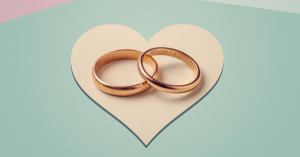Meghan Markle recently discussed the stereotype of the “angry Black woman” on her podcast, Archetypes. It fuels harmful perceptions about Black women in ways that can hinder their lives and careers by painting them as temperamental, overly loud, violent, and prone to bitterness. The Duchess of Sussex has been outspoken about racism’s impact on her mental health, professional life, and relationships since stepping down as a senior member of the royal family. Markle talked with Issa Rae and comedian Ziwe on Tuesday, Oct. 25, about the stereotype and its history. In their discussion, the three women described how the trope was applied to them and how it inspired them to want to make changes in the entertainment industry.
She referred to a book she read during the early stages of the COVID-19 pandemic, Algorithms of Oppression, which explores how people perceive one another in the digital age. Markle recalled that the book talks about how search engines’ autofill features can influence people’s thinking, and when the book’s author typed “why are Black women so…” on a search engine, it resulted in options like, “Why are Black women so loud?”; “Why are Black women so mean?”; and “Why are Black women so angry? “Those were the seeds being planted,” she noted at the beginning of the podcast. “We all know that sometimes things make you feel angry or sad or hurt or upset — and that’s not a gender or racially specific feeling. Yet, this trope of the angry Black woman, it persists.”
Videos by PopCulture.com
The former actress, who appeared in seven seasons of Suits on USA Network, shared her own experiences of encountering the stereotype during her career. “I remember when I was auditioning, and even the idea of Black roles — I remember those casting sheets where the description of the character, she always had to have an edge or an attitude,” Markle said. Rae echoed her experience and remembered how reality television contributed to perpetuating the stereotype in the early 2000s with Black female personalities like The Apprentice’s Omarosa Manigault and The Flavor of Love’s Tiffany Pollard.
“It was this ruthless Black woman or this uncouth Black woman,” Rae said. “We were made to laugh at them as opposed to or to laugh with them in some ways. But it was just like these caricatures of Black women.” Then, after years of negative portrayals of Black women in television and films, Rae recalled, the other extreme was met, and Black female characters became only “fierce” and “flawless.” According to the producer, this depiction inspired her to fight for the title of her first television series, Insecure.
“I want to be able to show that not all women are like this. I don’t feel fierce, flawless all the time,” Rae explained. “These characters aren’t that all the time, and that’s OK.” She added, “It was like we overcorrected this other narrative, and now we couldn’t be human. We were superhuman.” Ziwe shared that the stereotype has caused others to admit feeling intimidated when talking face-to-face with her. “Usually, when I’m talking to an interviewer, the first thing that they say to me is, ‘I’m terrified of you,’” she remarked. “I’m like, Oh my God, that hurts my feelings. I’m a sensitive Pisces. Like, I don’t want you to be scared of me. That’s not my goal.” Ziwe noted that this interpretation comes even though she adapted parts of her approach from white male comedians like Howard Stern, Stephen Colbert, and Andy Cohen, who are widely regarded as respectful.
All three women agreed that deconstructing the angry Black woman stereotype meant understanding how to live with it “day to day.” Rae commented, “Even just being. And even if we did have, you know, these moments that were considered microaggressions or racist that we didn’t dedicate time to like ‘oh this is a racist moment” because in real life you don’t get those opportunities. “It’s more about like I experienced this microaggression at work. Now, how is that going to affect the way that I talk my part to my partner when I get home? How is that going to affect my mindset when I’m having this conversation with my friend? How does it dictate the way I move the next day as opposed to racism, ‘oh no!’ You know, because that’s just how we live.”








